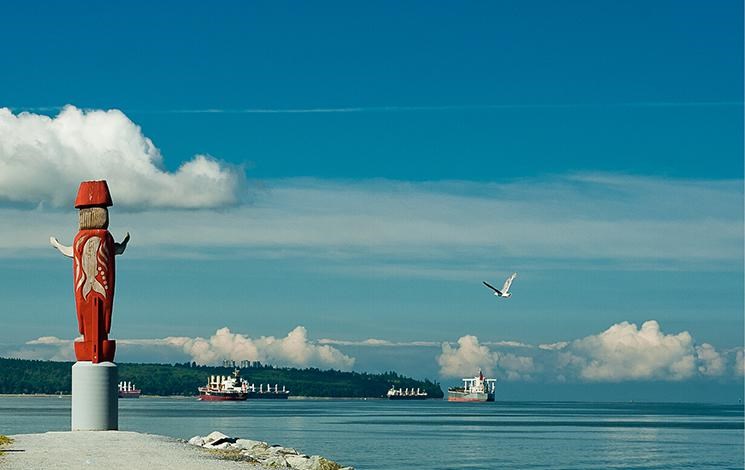On that warm, sunny evening last Friday, there were plenty of places to go in West Vancouver. But about 100 chose to fill the main hall of the West Vancouver Memorial Library to hear important voices that aren’t yet heard appropriately.
CBC journalist Angela Sterritt has just published Unbroken: My Fight for Survival, Hope, and Justice for Indigenous Women and Girls. It is a cliché to describe her writing and broadcasting as passionate and meaningful, but the adjectives apply and I can’t easily think of any better.
In her onstage conversation with UBC scholar Candis Callison (full disclosure: a colleague), the audience witnessed more than an hour of an educative, grounded glimpse of the changing context of our nation’s path. Many call this reconciliation, but the clearer descriptor is one Sterritt used: justice.
What the discussion evoked in me, though, was a sense of worry, principally that the community hosting the discussion is far from ready for the consequences of these inevitable changes, and that our local political leadership isn’t identifying the changes as integral discussions we need now. If anything, it’s walking back some of its predecessor’s work.
I looked the next day for the emails I received after I wrote last winter to question why the new West Vancouver council would strike the verbal land acknowledgment from its agenda. I deleted a few of the letters at the time, but even the remaining ones were disquieting. They expressed a lack of understanding of our history and exhibited the traits that frustrate the effort to transform the country. I didn’t get one email agreeing with me, by the way.
What also differed was that, unlike the anonymity some social media platforms furnish to permit the bile to flow, my emails came from West Vancouverites who identified themselves, who obviously sincerely held the views that these changes are ill-considered, or have already gone too far, or have no end-point to them.
I mention this in noting the extraordinary contrast last week in Vancouver of the three-Nation proposal to develop the Jericho Lands in the west part of the city adjacent to Point Grey. Late this decade, and for likely two to three decades, a new neighbourhood of about 30,000 will unfurl under Indigenous leadership – on ancestral land no different than the one West Vancouver occupies.
The latest proposal is about one-third larger than the original one, which shocked some and relieved others, depending on one’s perspective. It is the most dramatic, defining development in recent memory in a city desperate for housing, particularly if it means a more attainable offering. There are towers and townhouses, market-priced and subsidized, in quite the mix. There remain plenty of questions on conditions Vancouver council will attach in order to approve it – unlike the Senakw development by the Squamish Nation, which is not subject to local bylaws and zoning restrictions. The council’s decisions will signal like no other project the kind of power-sharing Vancouver envisions.
The disappearance of the verbal land acknowledgment here in West Vancouver was a step backward when most everyone is taking at least one forward. Silencing and offloading it to the printed agenda was an insult to Indigenous people of oral tradition and to the segment of the community that seeks progress, not regress, and an open-hearted new dynamic.
It’s petty, and council can’t seem to correct course. The mayor, who said the removal was designed to save time, now spends pretty much the same time pointing out that the acknowledgment is in the printed agenda. He can’t bring himself to say it, perhaps because it would admit fault.
When he points to the printed program, a slide is projected for council’s audience. It recognizes the “traditional, ancestral and unceded” land we occupy. Curiously, the word “unceded” has been stricken lately from the earlier printed version. (We’ll see how long it stays now on the slide.) The word-watching indicates how far behind we are officially.
I doubt anyone at the library Friday is proud of the history of mistreatment or afraid of the important discussions and challenging journey that Sterritt and Callison outlined. But when a simple, verbal truth of our place fails to enjoy the respect of our political leadership, what is that silence actually saying?
Kirk LaPointe is publisher and executive editor of Business in Vancouver as well as vice-president, editorial, Glacier Media Group, the North Shore News’ parent company. He is also a West Vancouverite.


